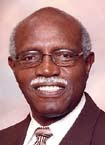What It Means to Pay Attention
Then the governor, Zerubbabel son of Shealtiel, and the high priest, Joshua son of Jehozadak, and all the people with them listened, really listened, to the voice of their God. When God sent the prophet Haggai to them, they paid attention to him. In listening to Haggai, they honored God. – Haggai 1:12 (The Message/ReMix)
Bishop Larry Goodpaster hit another hit another “home run” for me at the closing of our 2010 WNC Annual Conference at Lake Junaluska last week. A “spiritual home run” might be a more adequate word, but in his charge to both clergy and laity, he outlined three things that a missional church does: 1) it engages people, 2) it cooperates and collaborates, and 3) its expands our horizons. Highlighting several churches that epitomized (typical examples of) those points, Bishop Goodpaster gave the ultimatum to “get moving!” In other words as I saw it, he said, “if you want to make a difference [like those churches I just named] “get moving! You have to hit the road…to serve this present age.” In order to Follow Jesus, Make Disciples, and Transform the World, the local church [or true believer in Christ Jesus] is challenged to “rethink church” so as to live and lead the kind of life that would inspire the unchurched to find their way.
So what does it mean to pay attention? The context of Haggai 1:12 deals specifically with the identification of key leaders [Zerrubabel and Joshua] in the rebuilding the house of the Lord in Jerusalem. The Jews, who had returned from captivity in Babylon, were slow in their work due to opposition from hostile neighbors that caused them to be discouraged and to neglect the Temple and thus neglected God. But Haggai’s message turned them around and motivated them to pick up their tools and continue the work they had begun. In other words, the Jews were told to “get moving.” When Bishop said to us in Stuart auditorium that “we must take Jesus more seriously than ourselves,” I reheard Haggai’s plea to his flock that the Temple is the focal point of Judah’s relationship to God.
The latter end of that verse [from the Message/Remix version] says, in listening to Haggai, they honored God. What is the meaning here? First of all, let’s look at like this. How often have you heard a sermon and immediately responded because you recognized that God was speaking through the Pastor? Did you say to yourself something along these lines, “those were some excellent points that the Pastor brought out in the sermon. Lord, show me how to make them real so that I can put them all into practice.” This is putting faith into action. Whenever our spirits are in tune with the Holy Spirit as a sermon or lesson is brought forth, God shows up, as praise [from us] is automatic.
As a result of paying attention to Haggai, notice secondly what the Jews were able to do as addressed in verses 14,15:
So the Lord sparked the enthusiasm of Zerubabel son of Shealtiel, governor of Judah, and the enthusiasm of Jeshua son of Jehozadak, the high priest, and the enthusiasm of the whole remnant of God’s people. They began rebuilding the house of their God, the Lord of Heaven’s Armies. (TLB)
Once again the question is so what does it mean to pay attention? Haggai 1: 14,15 clearly illustrates that God shows up to bless those singularly {one person at a time} as well as a group with a spark of enthusiasm necessary in the work of kingdom building. Selah
Wednesday, June 16, 2010
Subscribe to:
Posts (Atom)
